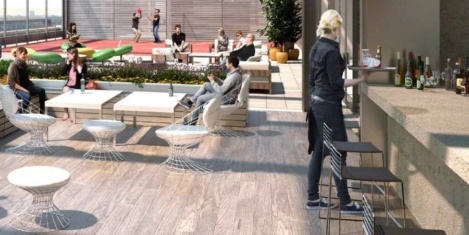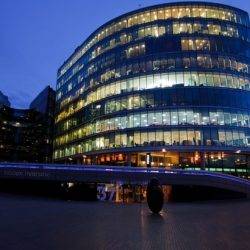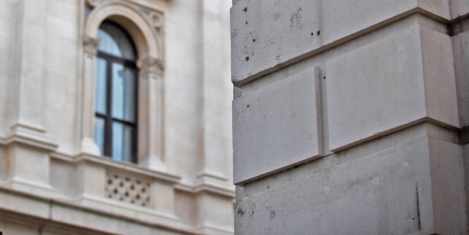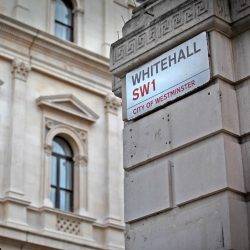January 22, 2018
Global business leaders feel more optimistic about the world economy
 Attracting and retaining talent is the biggest concern for CEOs going into 2018, but they’re feeling generally more optimistic about the global economy, claims a new report by The Conference Board, the C-Suite Challenge 2018 . A mood amongst senior managers to create organisational cultures that are inclusive, engaged, high-performance, customer-focused, and resilient is prevalent throughout the responses to this year’s survey. The desire for a “culture of innovation” ranks as the number-one innovation strategy in every region (Asia is the one exception, where it is third), every industry, every size company, and among CEOs and C-Suite executives alike. The impact of the New Digital Economy is clearly being felt in the daily processes and practices of organisations, and through the emergence of new competitors from every part of the globe. In Europe’s the c-suite remains worried about the impact of – which is unchanged from last year when it was the 8th biggest concern. More →
Attracting and retaining talent is the biggest concern for CEOs going into 2018, but they’re feeling generally more optimistic about the global economy, claims a new report by The Conference Board, the C-Suite Challenge 2018 . A mood amongst senior managers to create organisational cultures that are inclusive, engaged, high-performance, customer-focused, and resilient is prevalent throughout the responses to this year’s survey. The desire for a “culture of innovation” ranks as the number-one innovation strategy in every region (Asia is the one exception, where it is third), every industry, every size company, and among CEOs and C-Suite executives alike. The impact of the New Digital Economy is clearly being felt in the daily processes and practices of organisations, and through the emergence of new competitors from every part of the globe. In Europe’s the c-suite remains worried about the impact of – which is unchanged from last year when it was the 8th biggest concern. More →

















 The British Institute of Facilities Management (BIFM) has issued updated guidance to help in-house FM teams understand what is involved in managing and changing space. The revised Space Planning and Management Good Practice Guide aims to provide practical advice on the tools and techniques that can be deployed when planning and managing space, clearly illustrating the processes involved and enabling facilities managers to set overarching space management strategies for their organisation. Key areas covered in the guide include space demands, strategy and standards, programming and managing projects and the technologies available to help with the process. The guide has been updated by its original author Joanna Eley, director of Alexi Marmot Associates.
The British Institute of Facilities Management (BIFM) has issued updated guidance to help in-house FM teams understand what is involved in managing and changing space. The revised Space Planning and Management Good Practice Guide aims to provide practical advice on the tools and techniques that can be deployed when planning and managing space, clearly illustrating the processes involved and enabling facilities managers to set overarching space management strategies for their organisation. Key areas covered in the guide include space demands, strategy and standards, programming and managing projects and the technologies available to help with the process. The guide has been updated by its original author Joanna Eley, director of Alexi Marmot Associates.


 A major research study into Health and Wellbeing in offices has been launched by the British Council for Offices (BCO). “Wellness Matters: Health and Wellbeing in offices and what to do about it” is a year-long project which aims to provide definitive guidance on how to enable office Health and Wellbeing across a building’s lifecycle. The major research study has been commissioned to critique existing Health and Wellbeing measurement and certification, identify the most recent and relevant medical evidence justifying a proactive approach to Health and Wellbeing in the built environment, and give guidance on the business case for investment in this space beyond simply improving productivity. Most significantly, this research aims to deliver a practical guide to creating a healthy environment across the different stages of a building’s life cycle, from design, construction and leasing to the most important aspect by time and value: occupation and asset management.
A major research study into Health and Wellbeing in offices has been launched by the British Council for Offices (BCO). “Wellness Matters: Health and Wellbeing in offices and what to do about it” is a year-long project which aims to provide definitive guidance on how to enable office Health and Wellbeing across a building’s lifecycle. The major research study has been commissioned to critique existing Health and Wellbeing measurement and certification, identify the most recent and relevant medical evidence justifying a proactive approach to Health and Wellbeing in the built environment, and give guidance on the business case for investment in this space beyond simply improving productivity. Most significantly, this research aims to deliver a practical guide to creating a healthy environment across the different stages of a building’s life cycle, from design, construction and leasing to the most important aspect by time and value: occupation and asset management.











May 26, 2017
An overdue attempt to connect smart buildings with smart people 0
by Xenia Kingsley • Comment, Property, Technology
More →